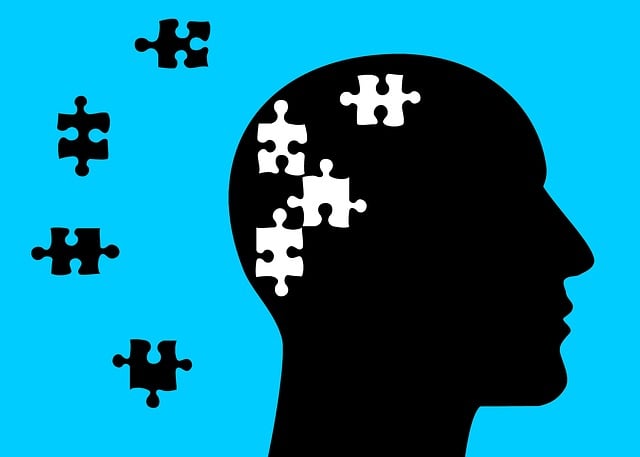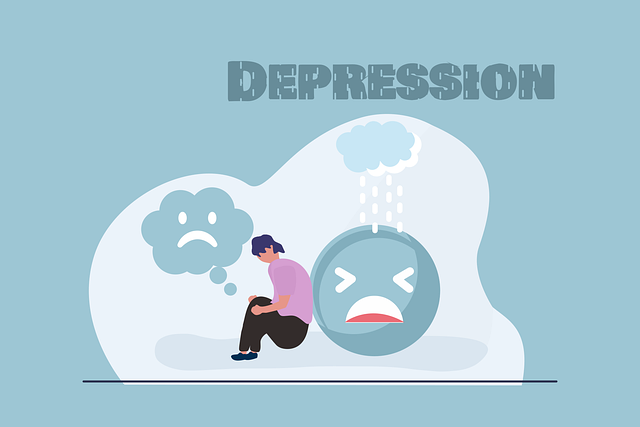Positive thinking exercises, grounded in Mind Over Matter principles, are a powerful tool for enhancing mental health and well-being, as backed by research. At Wheat Ridge Men's Issues Therapy, these practices help clients challenge societal expectations around emotion expression, develop healthier coping mechanisms, and cultivate compassion. By integrating daily positive thinking routines with strategic interventions, therapy outcomes improve, fostering optimism, emotional regulation, productivity, and stronger relationships. This holistic approach also includes advocacy for mental health policies promoting male well-being.
Positive thinking exercises have emerged as a powerful tool for enhancing mental well-being. This article explores how implementing these practices can significantly impact mental health, drawing specific insights from the context of Wheat Ridge Men’s Issues Therapy. We’ll guide you through understanding positive thinking, its benefits, and practical strategies for incorporating daily exercises. Additionally, we’ll delve into overcoming challenges encountered in therapy settings, offering valuable techniques tailored to men’s unique needs.
- Understanding Positive Thinking and Its Impact on Mental Health
- Incorporating Daily Positive Thinking Exercises
- Overcoming Challenges: Strategies for Wheat Ridge Men's Issues Therapy
Understanding Positive Thinking and Its Impact on Mental Health

Positive thinking is a powerful tool that can significantly impact an individual’s mental health and overall well-being. It involves cultivating a mindset focused on optimism, gratitude, and the belief in personal capabilities. Research has shown that this simple yet profound practice can lead to substantial improvements in one’s emotional state, stress management, and even physical health. By encouraging positive thoughts and reframing negative ones, individuals can reduce anxiety, depression, and other mental health concerns, making it a valuable asset for anyone seeking improved mental wellness, including those engaging in Wheat Ridge Mens Issues Therapy.
In the context of men’s issues therapy, understanding the impact of positive thinking is crucial. Many men struggle with expressing emotions and adopting healthy coping mechanisms due to societal expectations. Implementing communication strategies that promote positive thinking can help clients challenge these norms and develop more adaptive ways of processing their feelings. Moreover, compassion cultivation practices and mental health policy analysis and advocacy, when intertwined with positive thinking exercises, can foster an environment where individuals feel empowered to take charge of their mental health, ultimately leading to more effective therapy outcomes.
Incorporating Daily Positive Thinking Exercises

Incorporating daily positive thinking exercises into your routine can significantly transform your mental well-being, particularly when coupled with Wheat Ridge Mens Issues Therapy. These practices, grounded in Mind Over Matter principles, serve as a powerful tool for personal growth and resilience. Start with simple reflections each morning, focusing on gratitude and positive affirmations. This sets the tone for the day, fostering a mindset that’s more attuned to success and happiness.
For enhanced benefits, integrate these exercises into existing Social Skills Training programs or even contribute to Public Awareness Campaigns Development by sharing personal experiences and insights. Regular practice can help individuals challenge negative thought patterns and cultivate a more optimistic outlook. This, in turn, can lead to improved emotional regulation, increased productivity, and stronger relationships, ultimately enriching one’s overall quality of life.
Overcoming Challenges: Strategies for Wheat Ridge Men's Issues Therapy

In the context of Wheat Ridge Men’s Issues Therapy, overcoming challenges is a pivotal aspect of fostering positive change. Many men face unique barriers to their mental health and well-being, stemming from societal expectations, personal experiences, or complex interpersonal dynamics. To address these issues effectively, therapists employ strategic interventions that delve into the root causes of distress. By integrating principles from Mental Health Policy Analysis and Advocacy, the therapy program encourages clients to challenge existing norms and advocate for policies promoting male mental health.
This holistic approach goes beyond individual therapy sessions by incorporating Self-Care Routine Development for Better Mental Health. Men are equipped with practical tools and techniques to manage stress, regulate emotions, and prioritize their psychological needs. Mind Over Matter principles play a crucial role in reshaping negative thought patterns, fostering resilience, and empowering individuals to navigate life’s challenges with greater equanimity. Through these strategies, Wheat Ridge Men’s Issues Therapy offers a transformative journey towards improved mental health and enhanced overall well-being.
Implementing positive thinking exercises, as explored through the lens of Wheat Ridge Men’s Issues Therapy, offers a powerful tool for enhancing mental well-being. By integrating these practices into daily routines, individuals can cultivate resilience and improve overall life satisfaction. Overcoming challenges through strategies discussed, such as structured therapy sessions and tailored approaches, enables men to navigate personal growth and emotional healing effectively. Embracing positive thinking as a transformative practice has the potential to bring about lasting changes in mental health outcomes.












